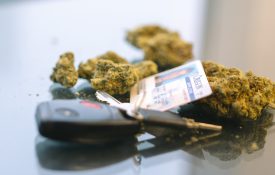-

Cannabis Users See Low Risk in Driving High
As marijuana restrictions loosen up, behavioral researchers are finding that some drivers believe driving under the influence of cannabis poses fewer risks than driving while drunk.
-
Does psychology have a conflict-of-interest problem?
Generation Z has made Jean Twenge a lot of money. As a psychologist at San Diego State University in California, she studies people born after the mid-1990s, the YouTube-obsessed group that spends much of its time on Instagram, Snapchat and other social-media platforms. Thanks to smartphones and sharing apps, Generation Z has grown up to be more narcissistic, anxious and depressed than older cohorts, she argues. Twenge calls them the ‘iGen’ generation, a name she says she coined. And in 2010, she started a business, iGen Consulting, “to advise companies and organizations on generational differences based on her expertise and research on the topic”.
-
The Science Of Smiles, Real And Fake
The notion that you can smile your way to happiness is an enduring one. Back in the 1800s, Charles Darwin was among the first to come up with what modern scientists further developed into the "facial feedback hypothesis." That's the idea that smiling can make you happier and frowning can make you sadder or angrier — that changing your facial expression can intensify or even transform your mood. Dick Van Dyke sang about the phenomenon — and so did Nat King Cole. And it is still taught in psychology classes today. But researchers are now finding that this phenomenon may be more complicated than they once thought.
-
Online Game Helps Fight the Spread of Fake News: Study
An online game that allows people to deploy Twitter bots, photo-shop evidence and incite conspiracy theories has proven effective at raising their awareness of "fake news", a study from the University of Cambridge has found. Results from the study of 15,000 users of the "Bad News" game, launched last year by the university's Cambridge Social Decision-Making Lab (CDSMLab), showed it was possible to train the public to be better at spotting propaganda. "Research suggests that fake news spreads faster and deeper than the truth, so combatting disinformation after the fact can be like fighting a losing battle," said Sander van der Linden, the CDSMLab's director.
-

New Research From Psychological Science
A sample of research exploring rationality in joint action; parenting, poverty, and brain connectivity; coupling between vocabulary and reasoning; and links between visual attention and perceived emotion.
-
What Dropping 17,000 Wallets Around The Globe Can Teach Us About Honesty
So picture this: You're a receptionist at, say, a hotel. Someone walks in and says they found a lost wallet but they're in a hurry. They hand it to you. What would you do? And would that answer be different if it was empty or full of cash? Those are questions researchers have been exploring; Thursday, they published their findings in the journal Science. The experiment started small, with a research assistant in Finland turning in a few wallets with different amounts of money. He would walk up to the counter of a big public place, like a bank or a post office.

